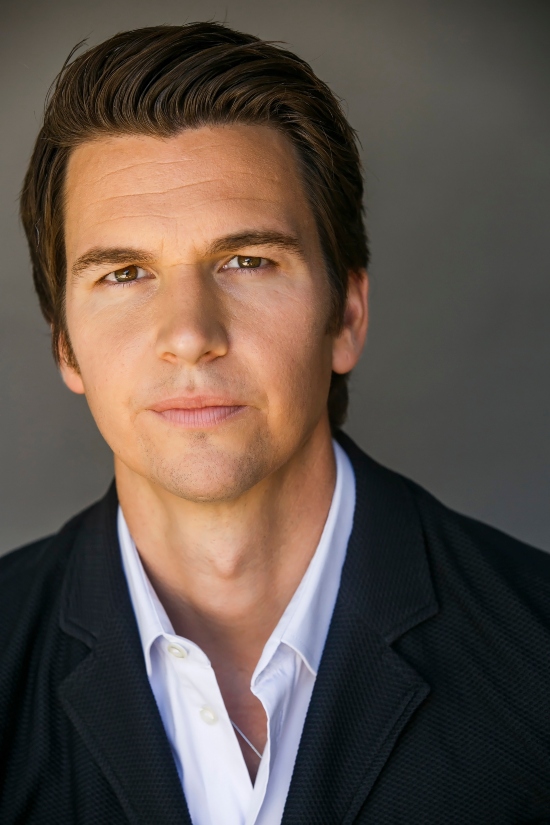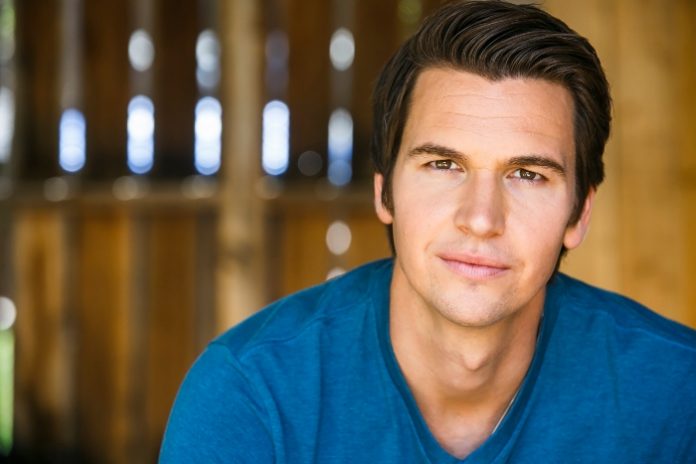Ted McGrath is an entrepreneur, best-selling author, and owner of a multi-million dollar business. But it wasn’t always easy. From an early age, Ted struggled with self-confidence issues. He just never felt “good enough.” At the age of 22 — having finally cracked the six-figure mark in the financial world — McGrath celebrated this success, which resulted in him ODing that very night. He ultimately got help and cleaned up his act, but the confidence, or lack thereof, remained an issue.
The budding entrepreneur was taken on at a top New York life insurance company and began to work his way up the ranks, eventually landing number 5 out of 500 partners. Yet upon reaching this “top,” He found himself feeling as empty as ever. So he resigned. He next started to coach businesses, which led to speaking seminars. The stage became the inspiration for a new idea, and one that would ultimately spark his true calling.
Ted decided to help others by creating a one-man play that depicted his life and the struggles he was met with. Of note was the lack of self worth that plagued him; but it also allowed him to relay his message on drugs and his downfall because of them. It chronicled his life from adolescence on in his effort to find his purpose in the world while haunted by a single, burning question: “What’s wrong with me?” And so Ted’s story of triumph and self-discovery was born in “Good Enough” the play.
This calling, however, came with a drive to do even more. So in an attempt to pass along his message in an even wider sphere, Ted launched the “Good Enough Movement” whose purpose was ultimately to change the world. Among other facets of the “Good Enough” brand includes a feature film currently in the works, in which Ted will star, a book in 2020, and an upcoming seminar for 2200 people from around the world where attendees can learn the principles to living their dreams.
We caught up with Ted to discuss entrepreneurship, finding a purpose, struggles with self-worth, and the future of his “Good Enough” brand.
Q: Your business has reached 7 figures and is poised to get to 8 by next year. How do you manage that in a declining economy?
A: We control the environment, the environment doesn’t control us. Most people use their environment as excuses as to why they aren’t thriving. And I believe that most people are confused as to what the real problem is. If your job isn’t going well, get to the root cause and do something about it. Don’t sit around and be the effect of things. That’s how I run my business. 100% in control over my future. If I don’t like my personal economy, I’m going to change it. There’s a billion options available to me; let’s create or choose one of them.
Q: What advice do you give young entrepreneurs coming up in the business world?
A: It takes work to develop a skill set that’s in line with getting paid what you’re worth. Work every day at improving your skill set so that you are valuable to others. If you have something that is valuable, then you can create your own success.
Q: You had found success in your career, but then hit rock bottom. What inspired you to become an entrepreneur?
A: Delusion. I thought entrepreneurship was the answer to freedom, but it wasn’t. Knowing who I am and what my desires are will help me choose a path that’s in alignment with my truth. I was climbing other peoples’ ladders to success. But I’m an artist at heart, and just so happen to be a badass entrepreneur because I trained myself to be one through doing, not talking about it.

Q: What was your “a ha” moment?
A: When I first saw a one-man play and decided I was going to write my own one-man play, and then perform it to send a message that was my true voice and could truly help others on their journey.
Q: Which trait do you see most in successful entrepreneurs?
A: They solve problems easily.
Q: How can a brand differentiate themselves when it comes to online marketing?
A: Tell a story that’s unique to you or your business, and that creates a powerful brand online. Find your voice. Be real.
Q: In this day and age, when we can hide behind our phones and computers, how do you encourage entrepreneurs to get in front of an audience and speak live?
A: Confront. You confront things by being there and doing it. The greatest growth one can have is to learn how to confront others and communicate with people. That’s the key to success.
Q: How do you connect with your audience in everything you do — from motivational speaking for corporations to performing on stage in your one-man show, “Good Enough?”
A: I found my voice. And my story is unique to me. No one else in the world has lived my life. By being personal in my communication, it helps others get to know themselves — because I’m having a meaningful conversation with people, particularly through my play “Good Enough.”
Q: People may think, “What does a play have to do with running a business?” Do you see it as a way to promote your brand?
A: I see my life as one vision. All things I choose for myself to help others fit into one vision. I chose the play because I love it, and because it will help others. I can choose anything to help promote my brand. I don’t need a play. But for me it was the most authentic choice I could make for me in service of others.
Q: What’s the best feedback you’ve gotten about your show?
A: When a person walks up to me and tells me something they have never told anyone before, and I watch the weight drop off their shoulders. I want to be that for my audiences, and I tell the story for that result. [This has happened many, many, many times — and I’m grateful.]
Q: Can you tell us more about your “Good Enough” movement? What’s in the future for it?
A: A book, a feature film, a tour of the one-man play, seminars, and digital products on how to live your dreams. A movement with all that will reach billions people with the message that “I am good enough,” and that “they are good enough too.”
For more information on Ted, please visit: tedmcgrathbrands.com.
Find a Home-Based Business to Start-Up >>> Hundreds of Business Listings.














































